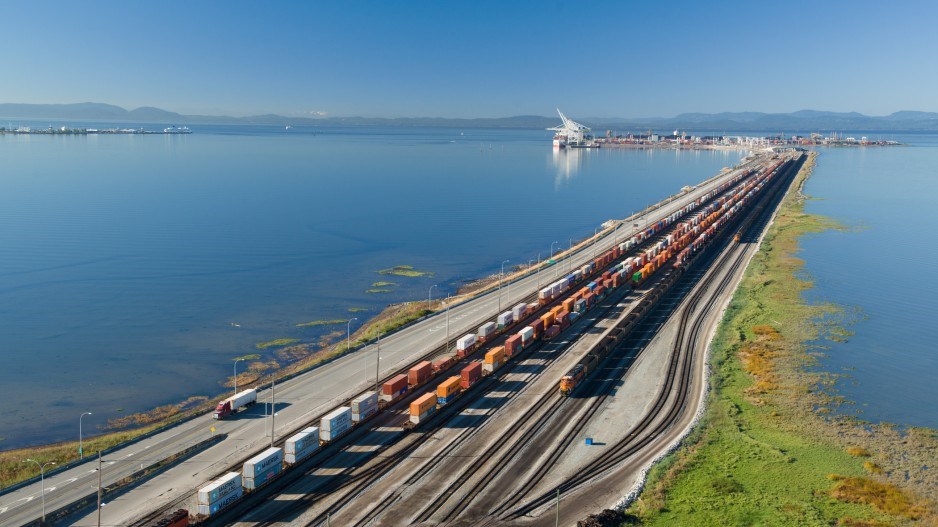In light of recent reports indicating the negative ecological implications of The Port of Vancouver’s proposed Roberts Bank Terminal 2 (RBT2) Project, GCT Global Container Terminal wants their right-size, environmentally-conscious approach to be given fair and proper consideration.
The Port of Vancouver has proposed construction of a new three-berth marine container terminal by building a brand new island at Roberts Bank to add container capacity and facilitate Canadian trade.
“As reports show, there is enough existing container capacity on Canada’s West Coast to meet demand well into 2030s, we have time to consider the options to ensure we make the best decision for Roberts Bank, the Salish Sea and Canadians,” Marko Dekovic, vice president public affairs at GCT says.
And the Port of Vancouver’s RBT2 project is facing important questions around its ecological footprint and impact, with many environmental reports that suggest the planned construction will disrupt multiple wildlife species, including the Southern Resident Killer Whale and its major food source, the Chinook Salmon as their migration patterns from the Fraser River delta will be obstructed.
“Permanent, irreversible, and continuous,” is how Environment and Climate Change Canada (ECCC) described the potential damage from building the proposed artificial island in the ecologically sensitive Salish Sea.
A separate Federal Review Panel Report for the Roberts Bank Terminal 2 Project also concluded that, “there would be significant adverse and cumulative effects on Dungeness crab as well as oceantype juvenile Chinook salmon originating from the Lower Fraser and South Thompson Rivers.”
These juvenile Chinook reside temporarily in the vicinity of the proposed RBT2 Project and would be subject to migration disruption by the terminal footprint and Project-related effects on the underwater acoustic and light environments.
The Federal Review Panel Report also concluded that RBT2 would “cause significant adverse and cumulative effects” on the Southern Resident Killer Whale through the reduced adult Chinook salmon prey available.
In addition to building on top of important Indigenous crabbing grounds, and disrupting the migration patterns of Chinook Salmon, the Port of Vancouver’s proposed 164-hectare project threatens globally important migratory bird species such as the Western Sandpiper, a shorebird that depends on biofilm for essential nutrition.
“There is insufficient science-based information to support the Proponent’s finding that the Project would not adversely impact intertidal biofilm and consequently, migratory shorebirds in general, and the Western Sandpiper species in particular,” Environment and Climate Change Canada says.
It also concludes that, “impacts to biofilm could potentially implicate the long-term viability of Wester Sandpipers as a species.”
For GCT, all of this underscores the significance of ensuring its proposed Deltaport expansion, Berth Four Project (DP4), that has a smaller footprint (1/3 the size of RBT2) in a less ecologically sensitive area, gets a fair process and consideration.
DP4 is proposed on the east side of the existing Roberts Bank causeway, where almost no biofilm has been identified and a lower juvenile chinook salmon presence has been detected.
GCT is one of the country’s largest marine industry employers and has been committed to the responsible growth of the Vancouver Gateway for over 100 years, through incremental, sustainable expansions.
Its proposed expansion DP4 project builds on its local knowledge and history, reflecting a commitment to minimizing the shipping industry’s impact on the environment and preserving the marine ecosystem, while maximizing a positive presence for local residents, the workforce, and the Indigenous people who share their land and resources with us all.
“We feel confident that our project is a responsible plan to provide container terminal capacity at Roberts Bank – it’s more environmentally conscious and makes better business sense. All we are looking for is fairness and opportunity to compete,” Dekovic says.
To learn more about GCT’s proposed expansion, visit www.betterdeltaport.ca.




